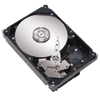- Qualcomm Launches Snapdragon 4 Gen 2 Mobile Platform
- AMD Launches Ryzen PRO 7000 Series Mobile & Desktop Platform
- Intel Launches Sleek Single-Slot Arc Pro A60 Workstation Graphics Card
- NVIDIA Announces Latest Ada Lovelace Additions: GeForce RTX 4060 Ti & RTX 4060
- Maxon Redshift With AMD Radeon GPU Rendering Support Now Available
Seagate Barracuda 7200.10 320GB

Though there are larger drives available, they do not fit into everyones budget. Simply going from 500GB to 320GB cuts the price in half, which makes this almost a steal. We will compare with one of our recently reviewed 500GB drives and see how it stacks up.
Page 2 – Testing Methodology, HD Tach, HD Tune
|
|
Throughout all of our benchmarks regardless of what we are reviewing, testing is done in a clean and stand-alone version of Windows XP Professional with SP2. Prior to testing, these conditions are met:
- Desktop and scrap files are cleaned up, including emptying of recycle bin.
- No virus scanner or firewall is installed in the stand-alone installation.
- The stand-alone installation drive is completely defragged using Diskeeper 10 Pro Premier.
- All unnecessary programs are closed, so that Windows should have no more than 15 active processes running.
- Computer has proper airflow.
If you are interested in using the same benchmarks as us, feel free to visit the developers website:
The testing rig used for today’s benchmarking is as follows:- CPU: AMD Windsor 4600+ EE @ 2.4GHz – 2.85GHz
- Motherboard: ASUS M2N32-SLI Deluxe (701 BIOS)
- Memory: OCZ VX2 2GB PC2-8000 Ti Alpha
- Video: ASUS 7800GT TOP
- Sound: Onboard HD Audio
- Storage: Seagate 7200.9 320GB
- Etcetera: Windows XP Professional w/ SP2, NVIDIA 81.98 Drivers
- Cooling: Corsair Nautilus 500
I will be comparing this 320GB drive to the previously reviewed 500GB Seagate 7200.9 drive. Now, there will be differences between the two drives in the tests, because the 320GB is a newer 7200.10 model. Still, this is a comparison between a $95 drive and a $260 one. Things should be interesting!
As expected, the 320GB cleaned up here, but even moreso than I expected in the average read tests. The 7200.10 drive scored a full 14MB/s better then the 500GB. Impressive… that’s a 21% increase. Nothing to scoff at, for sure.

Here is where differences between HD Tach and HD Tune become evident. The results varied quite a bit in the previous test, but here they are so close it’s scary. All of the read tests were -identical- to one another, but started to sway a bit with the Latency and Burst. It wouldn’t even be right to conclude a winner here… they are the same.

The exact same goes for our Sandra and PC Mark tests. The only thing that proved different was the PC Mark score, a mere 0.05% difference.

|
|
Support our efforts! With ad revenue at an all-time low for written websites, we're relying more than ever on reader support to help us continue putting so much effort into this type of content. You can support us by becoming a Patron, or by using our Amazon shopping affiliate links listed through our articles. Thanks for your support!





